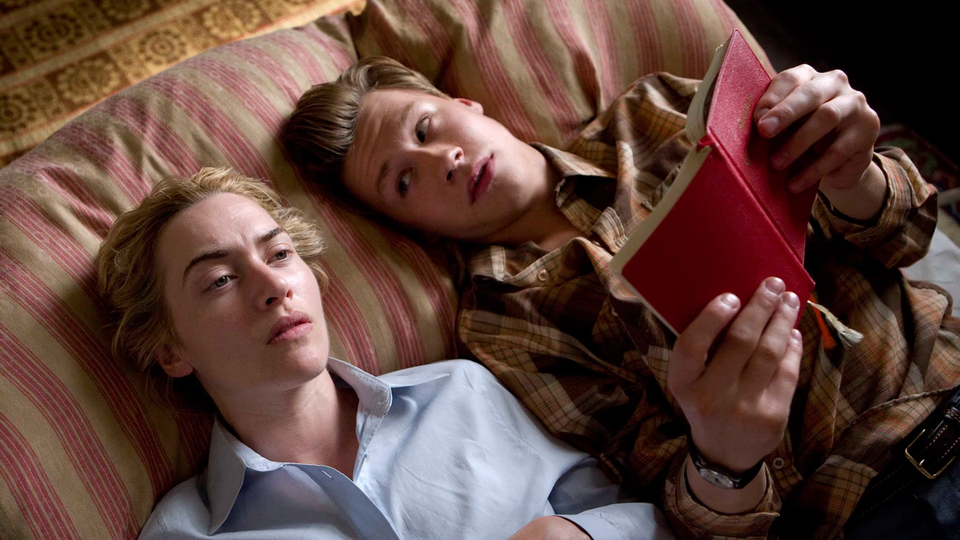The Reader

The Reader is an interesting, if flawed, look at the perception of evil, and the consequences of individual action.
The plot sees a teen boy, played by David Cross, have brief affair with an older woman, played by Kate Winslet, in post World War II Germany, that shapes his entire life.
The film opens well, efficiently showing us Kate Winslet’s character’s commanding, authoritarian presence, as well as Kross’s character’s vulnerable, impressionable nature. For here, the film starts jumping forward through Kross’s character’s life, and, in doing so, its biggest flaw becomes apparent, namely, that Kross doesn’t age.
Sure, the makeup folks do their best, but there should be pronounced physical differences between a boy of fifteen and a young man of twenty-two that just aren’t apparent. This is made even more jarring by the decision to use a different actor, namely Ralph Fiennes to play Kross’s character as he moves through his thirties, forties, and fifties. It’s a jarring transition that only serves to underscore how little Kross changed, appearance-wise, in the film’s previous scenes.
The film’s other problem deals with its big reveal. The audience sees it coming a mile away, causing much of the drama leading up to it to feel drawn out and overwrought. At just over two hours, this is an issue with the running time more than anything, as the film needs to be ten to fifteen minutes shorter.
That said, The Reader does showcase a great performance by Kate Winslet, and its refusal to condemn or exonerate her character’s actions is commendable, as it forces the viewer to judge for him or herself. If you can get past the two big aforementioned problems, you’ll find it a gripping drama, and even if you can’t, you’ll still be left with something to reflect on as you leave the theater.